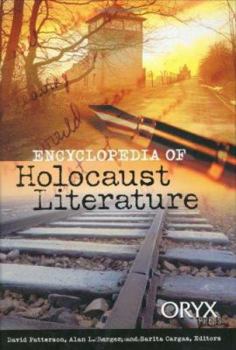Encyclopedia of Holocaust Literature
Whether it's a novel, memoir, diary, poem, or drama, a common thread runs through the literature of the Nazi Holocaust--a motif of personal testimony to the dearness of humanity. With that perspective the expert authors of Encyclopedia of Holocaust Literature undertake profiling 128 of the most influential first generation authors who either survived, perished, or were closely connected to the Holocaust. Arranged alphabetically by author, all of the entries answer the same basic questions about the author and his or her work: What is the nature of the author's literary response to the Holocaust? What is his or her place in Holocaust literature? What does the author's work contribute to an understanding of the Holocaust? What is distinctive about the author's work? What are some key moments in the author's life? What issues does the author's work pose for the reader? To address these questions, the entries are generally organized into three primary divisions: (1) an opening section on why the author's work has a significant or distinctive place in Holocaust literature, (2) a second section containing information on the author's biography, and (3) a critical examination of the highlights of the author's work. In most cases, the third section is the longest, since the focus of the encyclopedia is the literature, not the author.
The Encyclopedia is intended for all students and teachers of the Holocaust, regardless of their levels of learning. Avenues for further research are incorporated at the conclusion of each entry and in a comprehensive bibliography of primary works of Holocaust literature and a second bibliography of critical studies of Holocaust literature.




